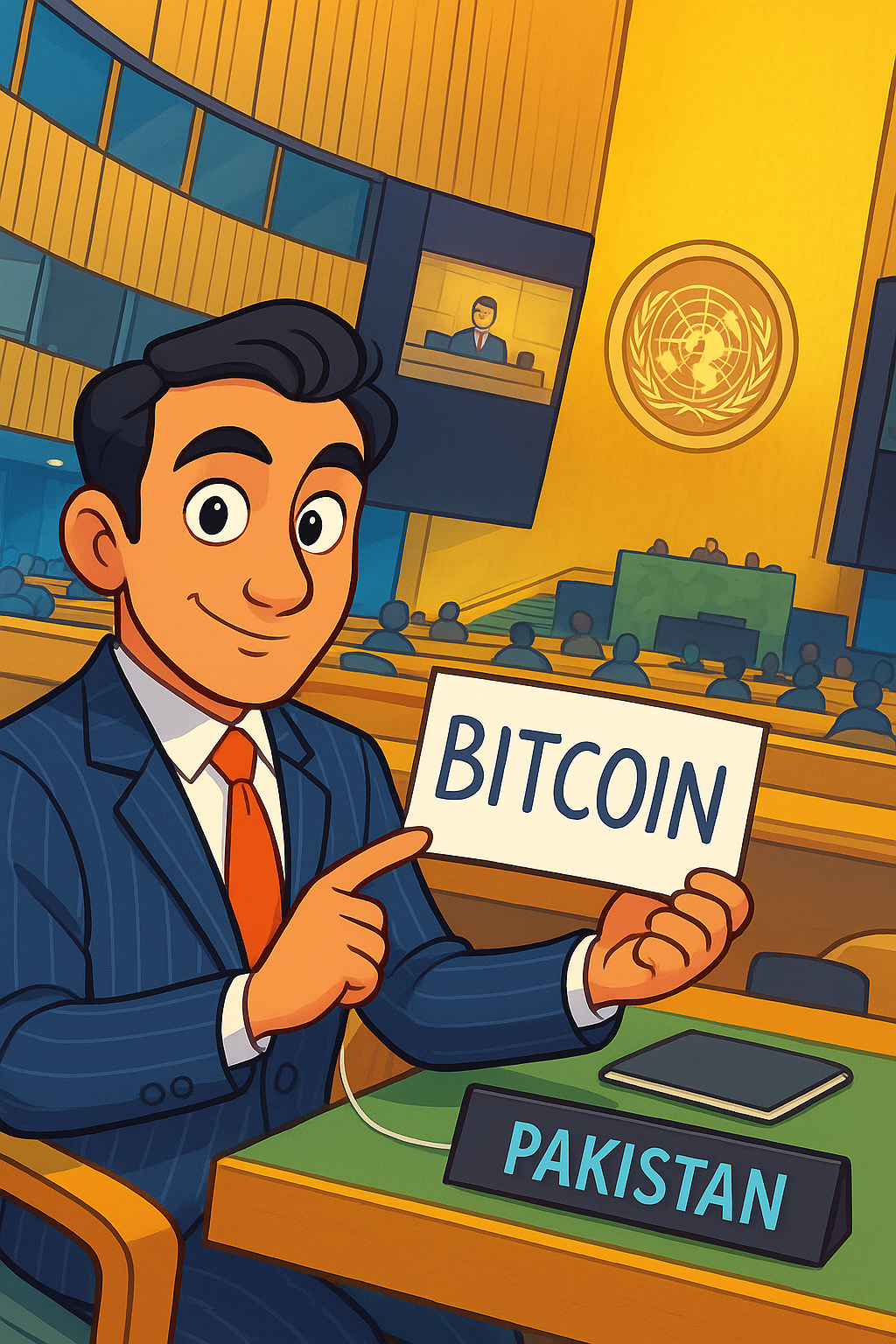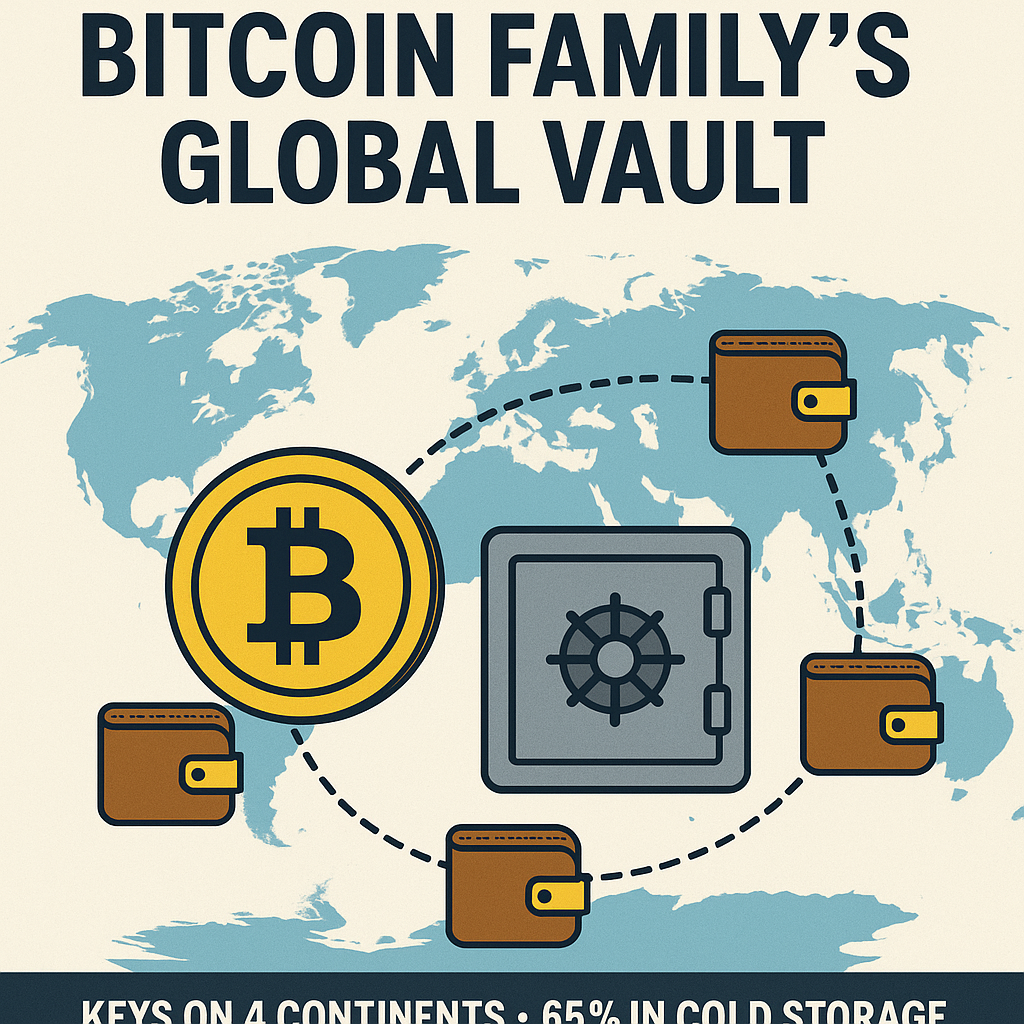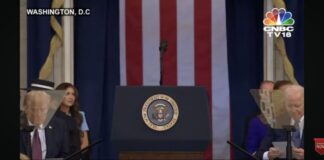When a government minister casually holds up a hand-written “BITCOIN” sign at the United Nations, it’s more than a photo-op — it’s a signal. That’s precisely what happened recently when Pakistan’s Minister of State for Crypto & Blockchain, Bilal Bin Saqib, was photographed displaying a Bitcoin placard inside the UN assembly hall. The image — picked up and amplified across social media and crypto press — crystallizes a broader shift: countries in Asia and parts of the Global South are moving from skeptical curiosity to active policy conversations about Bitcoin and digital assets.
From gesture to policy: Pakistan’s wider push
The sign at the UN didn’t appear out of thin air. Over the past several months, Pakistan has taken concrete steps that show a willingness to experiment with crypto at the national level. Officials and industry allies have publicly discussed a government-led strategic Bitcoin reserve, meetings with prominent Bitcoin advocates, and new institutional structures (like the Pakistan Crypto Council) to coordinate policy and investment outreach. These actions suggest Pakistan is thinking about crypto not merely as speculative finance but as a tool for monetary resilience, remittances and attracting foreign capital.
- The Guardiola Blueprint: Manchester City’s Relentless, Costly Pursuit of Perfection
- Bold Visions Meet Economic Reality in Davos 2026.
Why the gesture matters geopolitically
Political gestures matter because they change perceptions. When a minister flashes a Bitcoin sign at a multilateral forum, it feeds a narrative that digital assets are moving into mainstream diplomatic and economic conversation. For nations wrestling with debt, weak currencies, and large remittance flows, Bitcoin can look attractive as a hedge, a tool for cross-border value transfer, or even as a component of a diversified reserve strategy. That’s why observers interpreted the UN photo as a small but visible marker of Bitcoin’s growing acceptance on the international stage.
The “halal” case — why many in the Muslim world are watching
A recurring theme in the Pakistani social and political conversation is religion: if Bitcoin can be framed as compatible with Islamic finance principles, that removes a major barrier to adoption across the Muslim-majority world. Advocates argue Bitcoin’s decentralization, transparency, scarcity and the absence of interest-bearing issuance align well with core Shariah concerns — notably the prohibition on riba (interest) and the demand for transparency and justice in transactions. Critics, however, point to volatility, speculative trading and the lack of a universally accepted backing as reasons for caution. In short: there is no single consensus among Islamic scholars yet, but the debate has shifted from theoretical to practical and policy-focused arguments.

Practical drivers behind the push
Several practical realities push countries like Pakistan to engage with Bitcoin:
Remittances: Large cross-border worker flows mean cheaper, faster settlement is politically and economically valuable.
Foreign direct investment (FDI) and fintech growth: Signaling a crypto-friendly stance can attract startups and capital.
Reserve diversification and monetary resilience: Some policymakers are exploring Bitcoin as an asset that could help diversify sovereign balance sheets.
These drivers help explain why a symbolic moment at the UN has an echo in boardrooms, ministries and strategy meetings.
Risks and realities — why caution remains essential
Symbolic support can accelerate interest, but it doesn’t eliminate real constraints. Bitcoin’s price volatility, unclear international regulatory frameworks, AML/KYC concerns, and environmental critiques around mining remain live policy problems. Moreover, countries that lean into Bitcoin must build robust legal frameworks, consumer protections, and technical capability to manage the transition responsibly. Multiple governments and Islamic jurists have urged careful study and tailored regulation rather than wholesale, rapid adoption.
What this means for the global financial system
If more governments publicly endorse or at least engage constructively with Bitcoin, the currency’s role shifts from niche asset to an instrument with systemic consequences: different settlement rails, new reserve considerations, and pressure on existing cross-border payment incumbents. The UN photo is not the beginning of that shift by itself — but it is a vivid signpost in a larger migration of political imagination toward accepting digital assets as part of mainstream economic policy.

The image of Pakistan’s crypto minister holding a Bitcoin sign at the United Nations is shorthand for a larger story: governments that once framed crypto as fringe are now actively debating how it fits into national strategy. For countries in Asia and the Global South, the attraction is practical — remittances, capital formation, and monetary resilience — and cultural, insofar as some believers and scholars consider Bitcoin’s features potentially compatible with Islamic finance. That combination — practical needs plus shifting normative views — explains why a hand-held “BITCOIN” sign at a global forum can be far more consequential than it looks.











xpp0c9
f0qt98